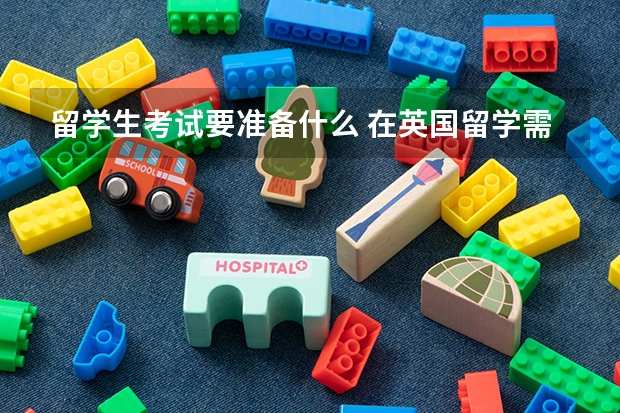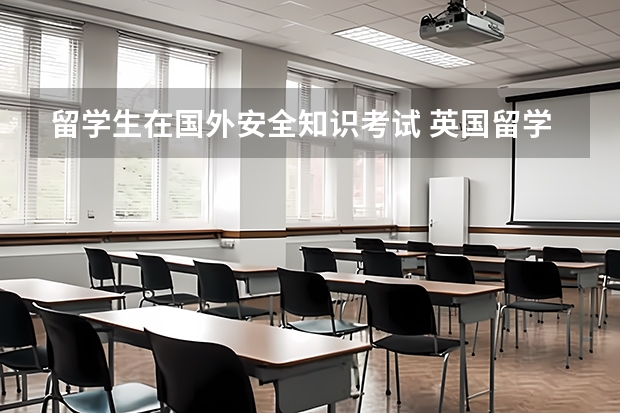雅思口语换题季我该如何应对
2024-01-16 06:51:07 | 留学摆渡人
本文目录一览:

怎样备考雅思口语换季题??
二. 雅思口语换题季提升口语基础比较重要 留学摆渡人
虽然即将要面对雅思口语变题季,但如果能提升口语基础,能够游刃有余应对各类话题,就没有必要担心变题季出现的新话题。雅思口语基础提升主要有三个方面,分别是语音语调、口语表达能力和语料准备。语音语调是口语的基础,可以多做跟读和模仿练习,提升语音语调。练习过程中不用纠结英美音选择,只要发音标准,英音美音都可以,只要注意口语考试中不要突然切换英美发音就可以了。口语表达能力的练习需要在打好基础的前提下多交流,建议找Native speaker就一些话题作深入探讨,不要只是日常问候就结束对话。语料准备也很重要,虽然遇到口语变题季,但是大家可以准备一些通用语料,避免口语考试中无话可说。
三. 雅思口语换题季可以参考新题库
雅思口语变题季后,题库会固定三四个月,如果大家不是刚好在变题季开始就参加了考试,可以等到新的口语题库出来后参考新题库备考。网上有很多机构或者网站都会更新雅思口语题库,内容可能有些差异,建议大家甄别对比后使用,也可以综合着几个版本的题库一起使用。
总之,遇到雅思口语变题季,大家不必过于惊慌,因为口语题库虽然变更,但是题目难度却不会有很大变动,而且雅思口语备考中比较为重要的是口语基础。如果大家不是刚好赶在变题季考试,可以参考新的口语题库来备考。
环球青藤友情提示:以上就是[ 怎样备考雅思口语换季题?? ]问题解答,希望能够帮助到大家!

雅思口语换题季我该如何应对
每年的1、5、9月是雅思口语的换题季,因此在这三个月份的第一场雅思口试甚至到第三场都还在出现新。1.及早准备口语话题库,千万别指望临时抱佛脚。很多学生都关心一个问题,Part 2那么多话题平时怎样训练?来自老师们建议是Part 2部分最好采用头脑风暴,发散性思维,紧密围绕话题展开表述,另外平时要多练习就不存在没话说的问题。语法要正确但不需要像写作那样过于复杂,要有语调起伏,无论什么话题都有强烈的说下去的意愿。
2. 练习口语不仅是背段子,语音语调不能忽视。很多考了5-5.5分的烤鸭儿们很郁闷的是考官为什么怀疑我在背答案,我说了什么使得考官很不喜欢听?那一定是考生糟糕的语音语调!指的是那种不带任何感情的过于平淡的语调,不自然的面部表情甚至卡壳忘词,这些都会让考官有理由怀疑你在背诵已经准备好的答案。不要再用“雅思考试不对accent进行评分”这样的话来自欺欺人了,如果你的语音语调intonation够好,突破了中式口音的话,一定会给考官留下很好的印象!其次是你的答案太老套了,和千百个其他考生说的几乎没有任何不同,就算是背准备好的段子,也请稍微花点心思,加入些自己的特色表现的有些有辨识度吧!
3. Part 2话题虽多但不是最关键的,最后分数一定是综合去计算的。雅思口语又呈现出一个新的特点:突出了5.5-6.5分段对Part 3的重视。这样的话有能力的学生完全可以根据自己Part 3的问题的难易度预判自己在前2个Part究竟给考官留下了大致几分的印象。所以请各位考生莫要小看Part 1,该环节可是获取印象分的重要环节哦!建议考生尽情跟考官展开双向讨论,不需要你对考题有多么精准的研究,只要说出自己作为一个有思想的社会人对该问题的看法即可,切记不可先用你那造诣极高的中文构思语句,然后再翻译成英文,这样一定会出现各种卡壳!真正的双语者应该在说一种语言时,大脑要抑制另一种语言。

2023年4月26日雅思考试口语预测
您好,我是专注留学考试规划和留学咨询的小钟老师。在追寻留学梦想的路上,选择合适的学校和专业,准备相关考试,都可能让人感到迷茫和困扰。作为一名有经验的留学顾问,我在此为您提供全方位的专业咨询和指导。欢迎随时提问!雅思考试对于报考雅思的考生来说,都很重要,那么大家应该怎么考好雅思呢,和小钟老师一起来看看2023年4月26日雅思考试口语预测。
兴趣娱乐类
必考题
(1)音乐music
Do you often (like to) listen to music?
How much time do you spend listening to music every day?
What kinds of music do you like to listen to?
What’s your favorite kind of music?
How often do you listen to (that type of) music?
超高频题
(1)历史History
Do you like (to learn about) history?
What historical event do you find most interesting?
Do you think history is important?
Do you like to watch programs on TV about history?
How (or, from where) do you get information about history?
(2)字典Dictionary
How often do you use your dictionary?
Do you like paper dictionary or electronic dictionary?
What kinds of dictionaries have you used before?
How will dictionaries change in the future?
(3)购物Shopping
Are there many shops near your home? (What kind?)
Do you like shopping? (Why?/Why not?)
Who usually does the shopping in your home?
How often do you buy something in a shop?
(4)游泳swimming
Can you swim?
Do you like swimming?
Where do (or can) people go swimming in your hometown (or, near you home)?
Why do many people like swimming?
Do you think it’s important to know how to swim?
(5)唱歌sing
Do you often (like to) sing?
When do you like to sing?
How much time do you spend in singing every day?
What kinds of music do you like to sing?
(6)手写Handwriting
Do you usually write by hand or write using a computer (,typewriter or word-processor)?
Nowadays, how do most people write things?
Do you think computers might one day replace handwriting?
When do children begin to write in your country?
How did you learn to write?
Do you think handwriting is very important (nowadays)?
How can children today improve (or, practice) their handwriting?
What impression does a person’s handwriting have on other people?
(7)珠宝Jewelry
Do you like jewelry?
What kind of jewelry do you wear the most?
Why some people like to wear jewelry?
Have you bought any jewelry?
Do you wear many jewels?
(8)摄影photographs
Do you like to take photographs?
What kind of photos do you like to take?
Why do some people not like taking photographs?
Why do some people like taking photographs when they visit another place?
地点类
超高频题
(1)未来想居住的城市
Describe a city or country you most want to live in the future
You should say:
What is it
Where is it located
Why do you like it
(2)理想之家
Describe a dream home you would like to have
You should say:
Where this place is
What it is like
When you want to live in there
and explain why you want to live in such a place.
Part3
Do most Chinese people live in an apartment or house?
Do young people in your country like to live with their parents or by themselves?
Do Chinese people like to rent a place to live?
Would you live in a foreign country in the future?
How is modem home design (both inside & outside appearance) in your country different to that of the past?
In your country, what type of home do most people live in?
(3)听音乐的地方
Describe a place you know where people go to listen to music (such as a theatre or a music hall).
You should say:
where it is
what kind of music is performed there
what type of people go there
why people go there and explain your impressions of this place
part3
Should children learn to play instrument?
Should parents force them to learn music?
Is music education important in your country?
Some people say music is like math, do you agree?
What effects does technology have on music?
What are the advantages of learning music?
(4)和亲朋一起去的地方
Describe a place where you often visit with your friends or family
You should say:
Where the place is
How you know the place
How you go there
Why you want to visit
Part 3
Do you like to hang out with your friends?
What do you think is the most important thing of being friends?
Do you think that technology makes it easier to make new friends?
How could people find reliable friends on the internet?
Do you like to make friends with older people?
(5)礼貌场合
Describe a situation when you had to be polite
You should say:
What situation it was
Who were there
Why you had to be polite
How you showed politeness
Part 3
Are Chinese people becoming much politer or not?
In what ways do Chinese people show politeness?
What are the uncivilized manners on public transportation?
What would you do when this happens?
Should people show politeness to friends?
希望以上的答复能对您的留学申请有所帮助。如果您有任何更详细的问题或需要进一步的协助,我强烈推荐您访问我们的留学官方网站 ,在那里您可以找到更多专业的留学考试规划和留学资料以及一对一的咨询服务。祝您留学申请顺利! 以上就是雅思口语换题季我该如何应对全部内容,更多相关信息,敬请关注留学摆渡人。

雅思考试口语面试的问题环球教育老师为同学们总结雅思口语考试必备问题如下,希望对您的备考有所帮助~1.What'syourname?2.Doesyournamehaveanyspecialmeaning?3.Wherewereyoucomefrom?4.Whatkindoflandscapesurroundsyourhometown?5.Whatisthemai

雅思口语应该如何练习一、雅思口语的训练方法:1、丰富自己的词汇量和句型。这也是提高雅思口语的方法。雅思口语考试涉及上百个不同的口语话题,所包含内容之广可以说是骇人听闻的。考生平时可以多看TVprogram、talkshow、新闻节目和电影,大量进行单词和句型的记忆,并且在最短时间内进行口头练习,不仅是学习口语最快的方式,也是记忆单词、提高语感最佳的方式。2、训练自己的语音

2023年11月17日雅思口语考试机经您好,我是专注留学考试规划和留学咨询的小钟老师。在追寻留学梦想的路上,选择合适的学校和专业,准备相关考试,都可能让人感到迷茫和困扰。作为一名有经验的留学顾问,我在此为您提供全方位的专业咨询和指导。欢迎随时提问!口语考试是雅思考试中,非常重要的一部分,大家需要将考试放在心上,今天就和小钟老师看看2023年11月17日雅思口语考试机经。Part1

如何应对雅思口语Part3的利弊分析?雅思口语第三部分往往是对于第二部分的一个拓展衍生,这部分的问题比较的深入,有时候是需要考生有一个批判性的思考方式。所以环球青藤老师就来谈谈如何应对雅思口语Part3的利弊分析。出题方式:Whataretheadvantagesanddisadvantagesof….?解题思路:利弊分析,即要求考生讨论advantages&disadvantage

雅思口语Part3的答题技巧演示。今天,环球青藤朱国伟老师和大家分享一篇关于雅思口语Part3的答题技巧演示文章,值得大家阅读学习。更多精彩好文章,尽在环球青藤!雅思口语Part3问题1:Whataresomereasonswhypeopleeatout?雅思口语Part3的答题技巧演示1:It’satraditionthatweintendtotreatourfriendsandfamil

雅思口语考试应该如何选择考试时间雅思口语考一般都是在笔之前参加,但是同学们应该怎么选择自己的口语考试时间呢?以下是环球青藤小编为大带来的雅思口语考应该如何选择考试时间,希望能够帮助大选择合适的雅思口语考试时间。考生可以在雅思考试报名日期截止前两天,而且只有两天时间能够选择口语时间。登录雅思官网选择考试时间。报名截止日期为笔日期前3个周一的凌晨05:00,受公共假期影响的考试报名截止日期会

雅思口语考试答题技巧雅思考之前我们一定要做好自己相对将弱的部分备考,像如果大雅思口语部分弱的话,在考前多多做下雅思口语part2的练习备考,抓住雅思口语考时的雅思口语技巧,顺利的通过考。1.对于雅思口语技巧话题,问题比较浅,只要回答是什么,为什么,怎么呢可以。比如你觉得骑自行车好吗?可以回答好,对自身身体好。很多人把每天骑自行车作为自己健身方式,比如老年人。不需要回答的太多,以免

2023年10月24日武汉外国语大学雅思口语考试安排您好,我是专注留学考试规划和留学咨询的小钟老师。在追寻留学梦想的路上,选择合适的学校和专业,准备相关考试,都可能让人感到迷茫和困扰。作为一名有经验的留学顾问,我在此为您提供全方位的专业咨询和指导。欢迎随时提问!以下是小钟老师【雅思考试】频道为您整理的2023年10月24日武汉外国语大学雅思口语考试安排通知,想了解更多雅思考试动
-
 留学生可以报考警察考试吗 开始留学生不得报考公安
留学生可以报考警察考试吗 开始留学生不得报考公安2023-09-06 02:00:23
-
 为什么留学生不用考试 为什么留学生考试,出国留学考那么少?
为什么留学生不用考试 为什么留学生考试,出国留学考那么少?2023-09-07 13:37:40
-
 留学生考试要准备什么 在英国留学需要参考的考试有哪些
留学生考试要准备什么 在英国留学需要参考的考试有哪些2023-09-07 05:50:29
-
 美国留学生在家考试考什么 美国大学可进行“带回家考试”
美国留学生在家考试考什么 美国大学可进行“带回家考试”2023-09-03 11:49:08
-
 留学生在国外安全知识考试 英国留学安全常识
留学生在国外安全知识考试 英国留学安全常识2023-09-03 09:01:07
-
 法国高中留学生入学考试 法国留学具备的条件有哪些?
法国高中留学生入学考试 法国留学具备的条件有哪些?2023-09-02 16:21:00